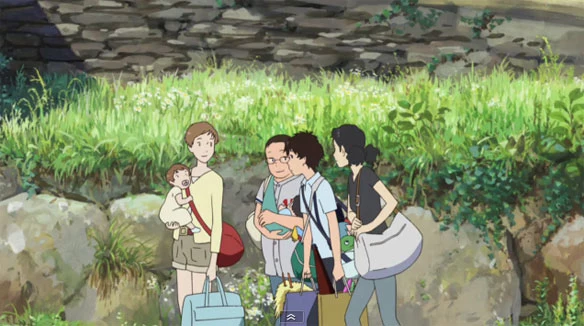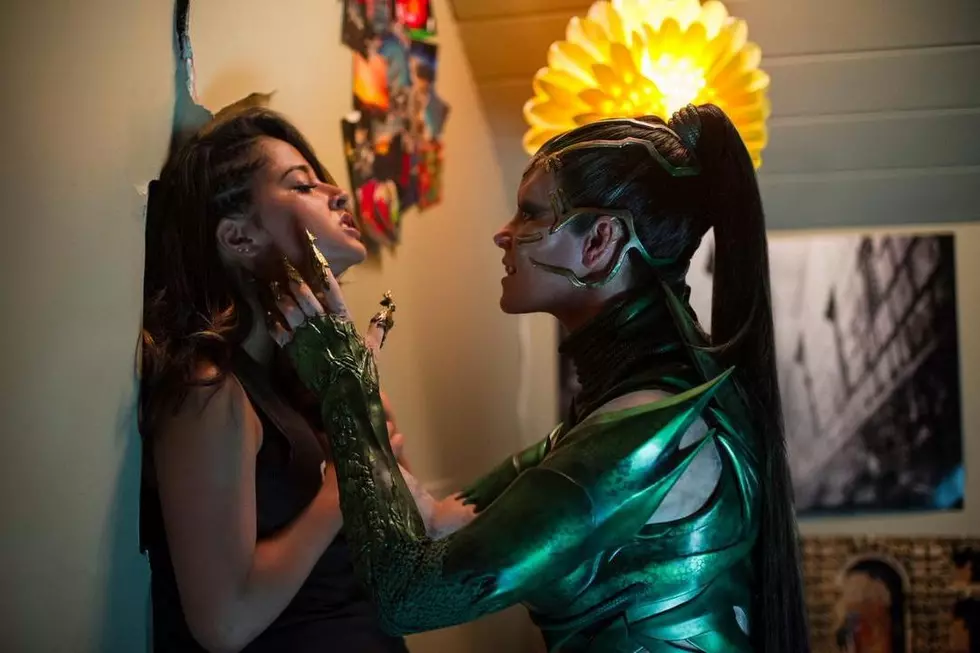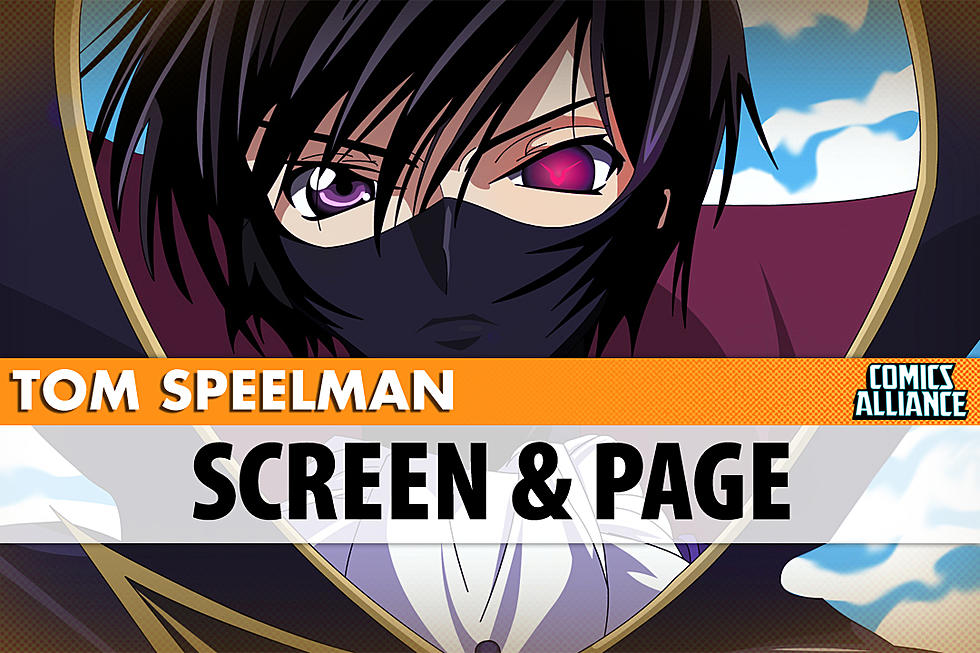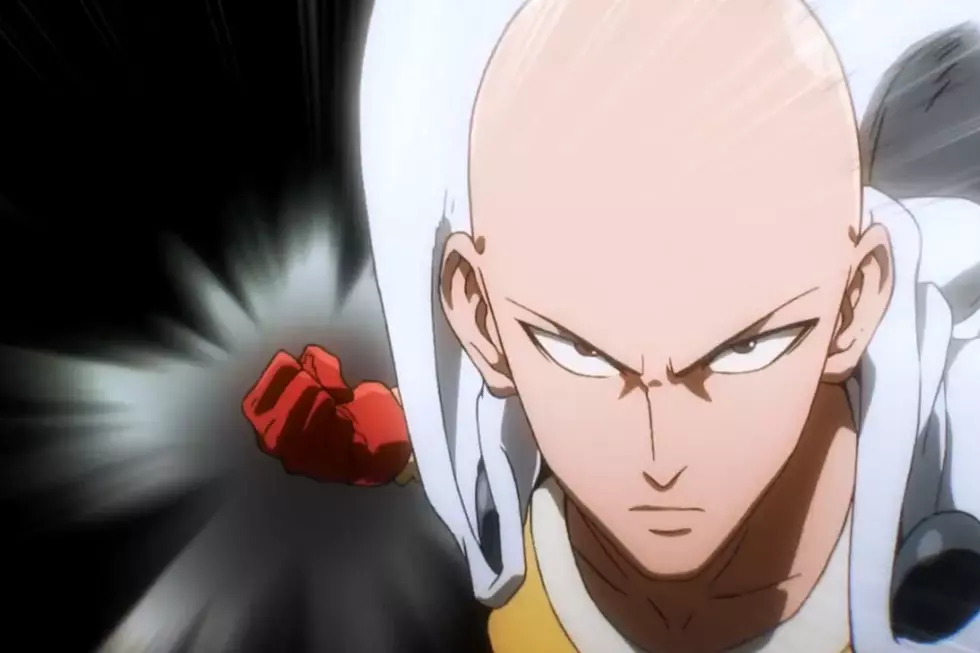![‘Summer Wars': Worth Seeing for the Visuals Alone [Review]](http://townsquare.media/site/622/files/2011/02/summerwars.jpg?w=980&q=75)
‘Summer Wars': Worth Seeing for the Visuals Alone [Review]

Funimation's recent release of Madhouse's Summer Wars is the latest cinematic stab at crossing Japanese anime over to a North American audience. Anime features and series aimed at the current, insular anime audience have been staples for years, but titles that click with those who aren't inherent otaku are few and far between. Summer Wars, from Mamoru Hosoda and Satoko Okudera (the director and screenwriter of The Girl Who Leapt Through Time, respectively) almost hits the mark. The animation is beautiful, but the story could've used a bit more work.At the beginning of Summer Wars, the plucky Natsuki begs Kenji to come to her family home to help with some heavy lifting. Unbeknownst to Kenji, that heavy lifting involves very little picking up and moving boxes and a whole lot of pretending to be Natsuki's fiancé. Kenji, of course, is your normal, unassuming, slightly shy teenager, so this trip out to the boonies instantly turns from a little confusing to intensely stressful. He suddenly has to maintain a lie while meeting Natsuki's entire family on the occasion of her grandmother's 90th birthday.
Kenji's also a tech for OZ, which is essentially the kind of social networking site born of a coupling of the Matrix and Second Life. Apparently, most of the people on the planet subscribe to the service, which intertwines their personal, private data to a worldwide video game. Everything from tax info to bank accounts to government records, classified or otherwise, is similarly linked to OZ. OZ, therefore, is Internet Plus, with all the convenience of your PlayStation linked to the privacy demolishing stylings of Facebook.

If Summer Wars were just about wacky teenage romantic hijinx and Facebook 2.0, it'd be incredibly boring. That's obvious, right? So, of course, the insane convenience of OZ ends up becoming a huge liability when the service gets hacked, thanks in part to Kenji (kind of), resulting in everything from traffic jams to economic collapse. Add a satellite plummeting toward Earth into the mix for extra tension, stir, and you've got a movie that doesn't quite hang together in the end.
Summer Wars's script isn't bad. Natsuki's family reunion provides a valuable touchstone for viewers, and helps to ground the action in OZ with real life motivations. The problem is that the characters never really clicked for me. Natsuki is a perfectly capable girl, but she panics and press gangs Kenji into a lie to impress her family, before you even get a sense of the two of them being anything more than classmates. Kenji is a math whiz and clearly into Natsuki, but a surprise trip to spend several days with her family seems like a bit much. Natsuki's family representing several facets of Japan's infrastructure is a little too on the nose, as well. There are a lot of moving parts, but they all feel just slightly out of sync. A certain amount of coincidence is a given in movies like this, but Summer Wars is a coincidence sandwich with coincidence stacked on coincidence stacked on a bed of coincidences.
On top of that, the cast is huge. The grandmother had several children, and all of them are here with their spouses and children. While everyone is perfectly distinct and full of personality, there are really too many family members for the movie to feel anything but crowded. Combining a few characters, or extending their runtime, might have worked a little better. What we're left with is a movie that sometimes feels bloated and slow, since every character has to justify its presence on-screen, and that just eats up minutes that could be spent entertaining us.

Despite the lackluster story, the animation in Summer Wars is excellent. It's split into two discrete sections: the real world, where the family reunion is happening, and OZ, where a rogue AI is wrecking everything it can find while it consolidates power. The real world is beautiful. The backgrounds and landscapes are fantastically rendered in such a way that they come across very painterly and realistic. Natsuki's family home is great, as well. It's filled with the little touches that make houses seem real, from trinkets and mementos to unopened closets and claustrophobic kitchen.
The characters are cartoony, but generally animated in a realistic way. Characters move, have weight, and express themselves like real people, which is always nice to see. There's some melodrama in the animation, which is to be expected, but not so much that the movie is full of people yelling with distended jaws for 115 minutes.
The animation in OZ is interesting. It's 3D, which is appropriate for the setting, but rendered like 3D cartoons, rather than a goofy Tron-like visualization of an electronic world. OZ is essentially a glorified video game, and it looks the part, with a variety of mismatched avatars and massive landscapes that stretch in every direction. The action scenes are generally confined to OZ, which allows for some fun martial arts action, a little bit of Final Fantasy: Advent Children drama, and a nice break from the family issues that swarm around the other half of the movie.
Summer Wars almost makes it. There's a kernel of good here, and the animation is lush, but the story tries to do too much with too little. The ending goes predictably sappy, too, but in such a way that it just stretches your suspension of disbelief. Despite my problems with the story, the visual side is so strong that I'd say you almost have to watch Summer Wars at least once. It's bright and beautiful, and one of the more well-animated movies I've seen in a while. They clearly had a budget to spend, and the visual rewards are great.
More From ComicsAlliance









